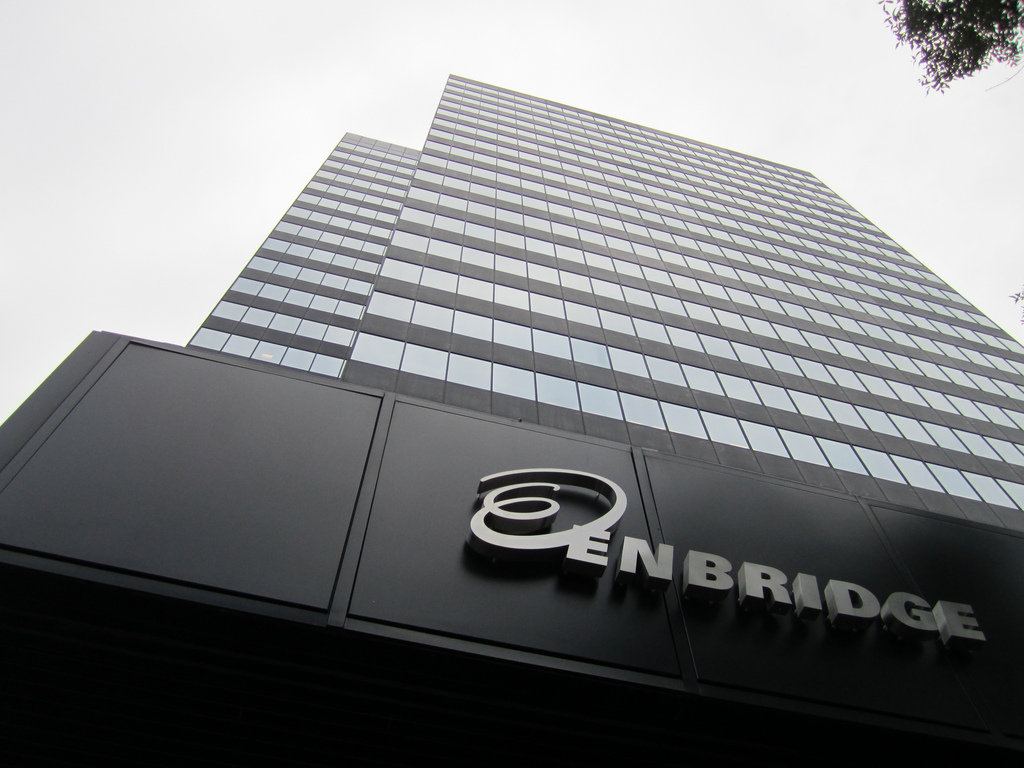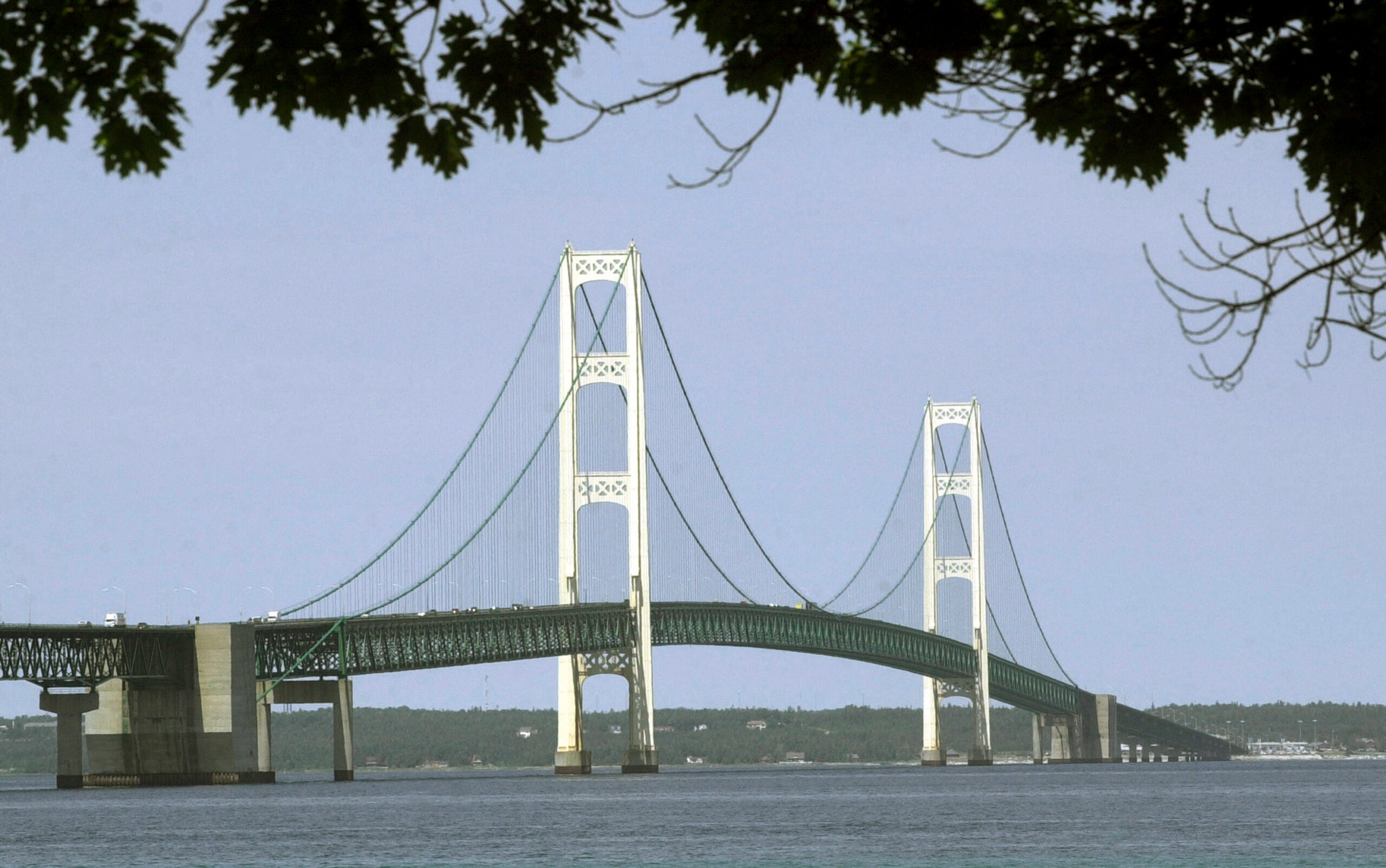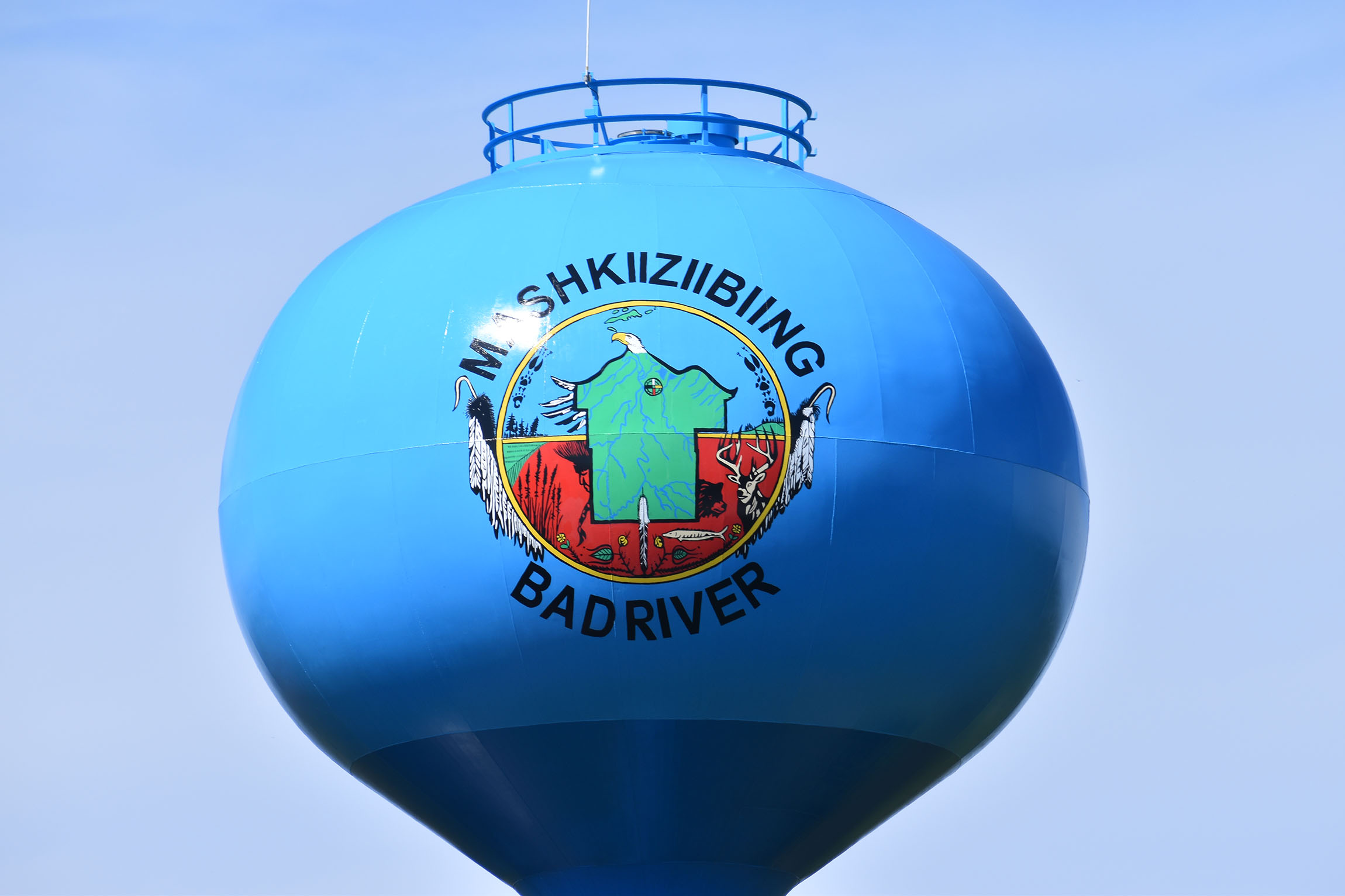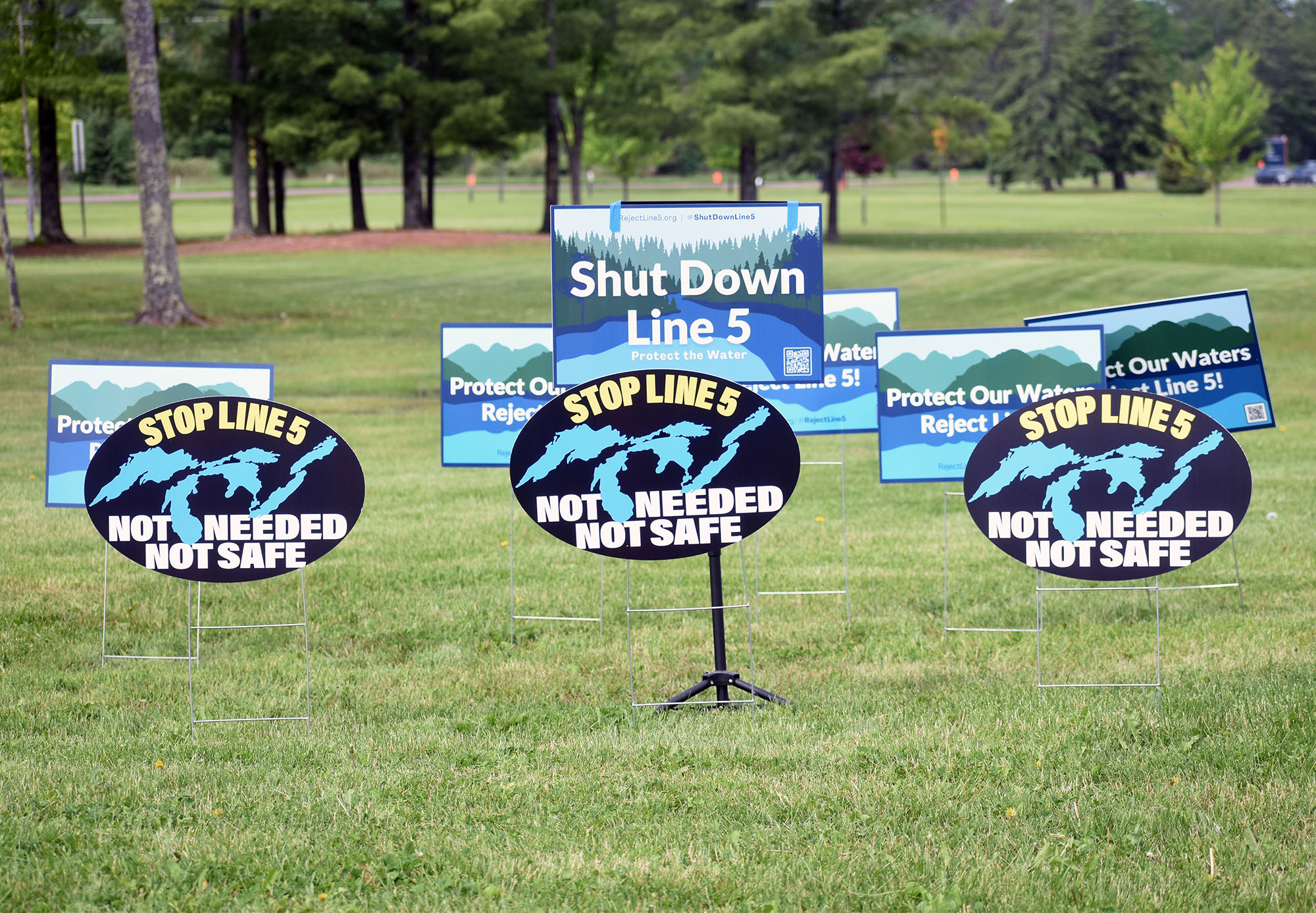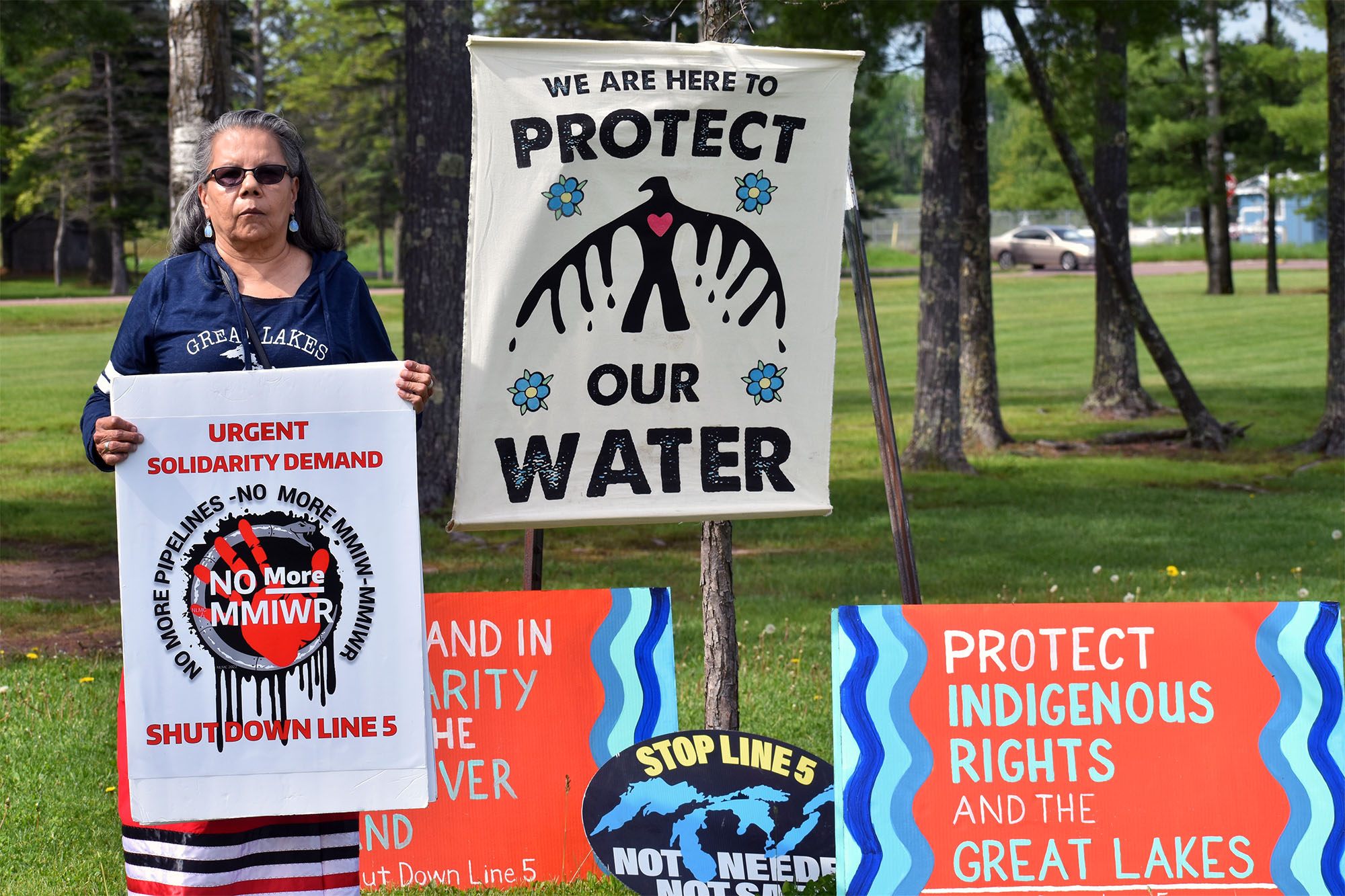Canadian energy firm Enbridge Inc. announced Friday that it’s beginning the permitting process to reroute its Line 5 pipeline in northern Wisconsin. The line carries up to 23 million gallons of oil and natural gas liquids per day from Superior to Sarnia, Ontario.
Enbridge has been exploring alternative routes for Line 5 since the Bad River Band of Lake Superior Chippewa filed a lawsuit against the company aimed at shutting down and removing the pipeline from the tribe’s reservation.
On Friday, Enbridge announced it’s filing a joint application for permits with the Wisconsin Department of Natural Resources and U.S. Army Corps of Engineers. The company is also filing an application with the Wisconsin Public Service Commission (PSC). The PSC would determine whether the project is in the public interest and whether to grant Enbridge the use of eminent domain to obtain lands for the pipeline’s relocation.
Stay informed on the latest news
Sign up for WPR’s email newsletter.
The company’s proposed route runs south of the Bad River reservation and north of Mellen in Ashland County. The pipeline relocation would span roughly 40 miles across Ashland and Iron counties.
“We’ve identified a proposed route that we believe best balances the impacts to protected environments and the impacted communities,” said Jennifer Smith, Enbridge’s community engagement editor.
WPR reported Thursday that the PSC doesn’t consider the company’s proposed route as part of its regulatory review unlike surrounding states.
Line 5 currently crosses a dozen miles within the tribe’s reservation. The company plans to completely remove the pipeline from tribal lands.
“We haven’t come to a solution on how and when to decommission the existing Line 5 across the reservation,” said Paul Eberth, Enbridge’s tribal engagement lead on the project. “We are actively and aggressively pursuing this reroute project so that we can decommission Line 5 across the reservation as soon as possible.”
The company plans to construct a 30-inch diameter pipeline south of the reservation and would employ around 700 workers during peak construction, according to Adam Erickson, Enbridge’s engineering and construction manager. The cost of the project has not yet been determined, but Smith has said it will likely run more than $100 million.

Map courtesy of Enbridge
Line 5 provides around 65 percent of the propane supplied to residents in Michigan’s Upper Peninsula and around 55 percent of Michigan’s propane fuel. It’s unclear how much energy the pipeline provides to residents of northern Wisconsin.
The project would require multiple state and local permits. Enbridge expects environmental review of the project will take about a year to complete.
The DNR anticipates it will conduct an environmental impact statement for the project, according to Ben Callan, chief of the agency’s integrated services section.
“The most detailed review and compilation of information is through an environmental impact statement,” said Callan. “That is the process that we’re going to include as part of this application submittal.”
The project would need to obtain waterway and wetlands permits as part of the construction. During the pipe’s installation, impacted waterways would normally be isolated from the work zone to minimize potential water quality impacts through methods like horizontal directional drilling underneath the water bed or the use of coffer dams. There will be multiple opportunities for public input on the project throughout the agency’s process.
Enbridge anticipates they would use the drilling option to install pipe under sensitive environmental areas like the Bad River, which would still be impacted despite the company’s proposed relocation.
The Bad River tribe sued Enbridge to shut down and remove Line 5 over fears the pipeline’s exposure from erosion would cause it to rupture and spill into the Bad River.
Bad River Tribal Chairman Mike Wiggins has said the tribe intends to fight to remove Line 5 from the region due to the significance of the watershed. He did not immediately return a request seeking comment on Friday.
Other tribal members believe the pipeline is a threat to the environment and watershed, including Joe Rose, a Bad River tribal elder and Ashland County Board member.
“This Enbridge pipeline corporation has a very nasty environmental track record, and I’m very concerned about that,” said Rose. “I’m concerned about what would happen if the Bad River Watershed was contaminated and what kind of a future that our children, our grandchildren and even those yet unborn would have.”
An Enbridge pipeline burst near Marshall, Michigan, in July 2010. The rupture cost the company $1.2 billion to clean up 1.2 million gallons of oil. Line 5 has also had at least 29 spills that released more than 1 million gallons of oil and natural gas liquids since 1968, according to the National Wildlife Federation.
The company has said its invested billions in safety improvements since 2010, transporting a record amount of oil in 2018 with few incidents.
Kathy Schutte, an Ashland County board member, supports Enbridge in its plans to remove the pipeline from the tribe’s reservation. She said the pipeline provides necessary fuel for the region, highlighting the hundreds of jobs that will be created through the relocation project.
“Enbridge is trying to help the communities that they are being good stewards of the land,” she said. “By that, they’re giving money or helping with what communities need to thrive.”
Ashland County will receive $500,000 for allowing a land deal to move forward between Enbridge and the city of Mellen related to the company’s proposed reroute of Line 5. The two governments have been facing financial challenges due to limited resources and growing costs due to infrastructure and other needs.
The company plans to hold several meetings about the project in Ashland, Mellen and Hurley later this month.
Wisconsin Public Radio, © Copyright 2025, Board of Regents of the University of Wisconsin System and Wisconsin Educational Communications Board.
